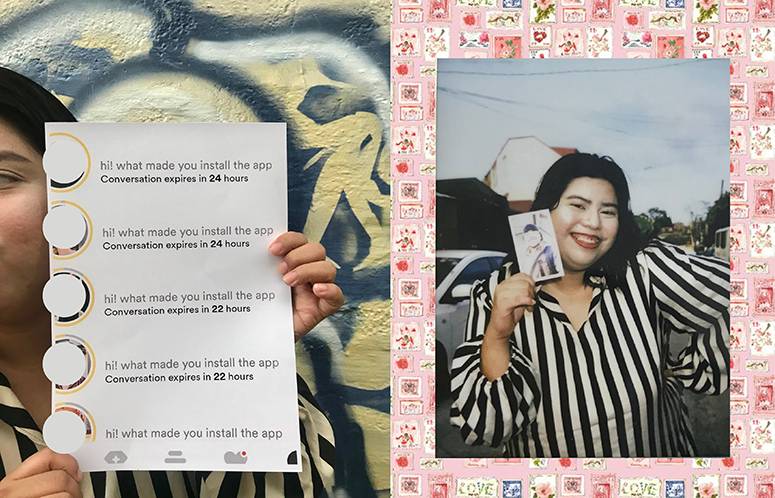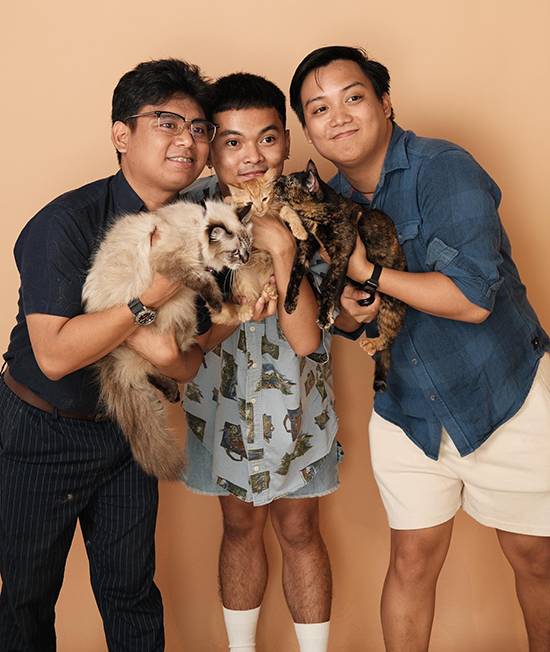What does an ethically non-monogamous Valentine’s look like?
Aud will celebrate Valentine’s Day with a Bumble match, and the day after with their long-distance partner, Tanvir. Tanvir knows this and is okay with it. They’ll be celebrating by sending each other care packages and watching something while they hang out online. Valentine’s Day is also their anniversary.
Like most relationships, theirs started with common interests and good morning texts. When they started to casually interact online, Aud was still in a long-term monogamous relationship. A month after it ended, they confessed their feelings to Tanvir, and the rest was history. “At first, I was scared but then again—why would I be when it’s just him?” Aud shared in an online interview with Young STAR.
Initially, they entered their relationship as just the two of them. Being ethically non-monogamous—i.e., the practice of engaging in a consensual relationship with multiple partners—was only brought up after some time of being together. Being unfamiliar with the concept at first, Tanvir took some time to understand their new dynamics. “If I had to date Aud, I realized that I could not tackle this with a monogamist mindset,” he said.

Setting and communicating clear boundaries, however, made it easier for him. Eventually, they loosened their boundaries and gained a better understanding of their relationship. “The two of us can talk, meet, date, and even hook up with whomever we fancy, as long as we communicate it with each other—usually (by) treating my encounters as hot gossip to share with Tanvir,” Aud said.
Having been socialized by a predominantly conservative culture that views love as finding or being found by “the one”—the perfect person who will fulfill our every need—non-monogamy can be difficult to digest. We’ve always been chastised for feeling romantic attraction outside our primary relationships. We were made to believe that the only way to be “faithful” is to be with a single person against all odds and only have eyes for them for the rest of our lives.
But faithfulness has very little to do with numbers. As Dossie Easton wrote in her book The Ethical Slut, “Faithfulness is about honoring your commitments and respecting your friends and lovers, about caring for their well-being as well as your own.”
It’s humanizing to recognize that beyond societal conventions, love is limitless and we’re allowed to overflow with it.
Love is not a zero-sum game. It's abundant enough (infinite, even) that it can be shared with more than one person without it losing any value or meaning.
For Simon and Ken, love is a gift that everyone should be able to give and receive no matter what form it takes.
Simon and Ken started as classmates. They started dating when Simon began practicing non-monogamy. At first, Ken was resistant to the idea but they eventually considered it. They’ve now been together for two and a half years as mono-poly partners—a relationship where one is monogamous (Ken) and the other is polyamorous (Simon).
In the years they've been together, however, they’ve met unique challenges. According to them, time management and prioritization have been an issue for Simon. He admits to overestimating himself in terms of dating people and, as a result, having less time to share with Ken. Despite almost breaking up due to these issues, they continue to work things out through constant communication.

When dealing with difficult emotions like jealousy, they categorize it as either justified or unjustified. This way, they can communicate and address the issues accordingly. “It comes down to reassurance,” Simon remarked.
In most conversations, whether or not online, one of the reasons people are resistant to non-monogamy is because “sharing” someone we love can be threatening. This isn’t surprising since most of us grew up with movies, songs, and even literature with languages that associate love with owning or being owned by someone. How many times have we heard declarations of love along the lines of “I’m yours and you are mine”?
Seeing love this way, it’s easy to feel insecure whenever our partners deviate from our expectations. For throuple Lawrence, Third and Vern, people project onto them these feelings through recurring questions about jealousy. “While there are times when only two out of three of us are doing things together, that doesn’t mean one of us is excluded and out of the picture,” they said.
Vern and Third had been with each other for six years—three of which were spent in an open setup—when they started dating Lawrence. “He turned out to be one of the sweetest people we have ever known,” Vern said. This year will be the first time they’ll be celebrating Valentine’s Day together. They plan to cook a nice dinner, watch something heartwarming, and cuddle with their cats.
This is also how they view their relationship: simple. “It’s not rocket science for us. The most important aspect in navigating our relationship is being clear and open with each other.”
A lot has been said about ethical non-monogamy—that it’s an excuse to cheat or that it’s merely a sexual kink. However, unlike cheating, ethical non-monogamy establishes and honors consent, boundaries and commitment. If only we'd see it for what it is, a lot can be learned from these relationships, such as communicating and respecting our needs and expectations, and seeing a person as a free being and not an object to possess.
It also frees us from the unrealistic and heavy burden of being everything all at once for our partners. “There are so many rules and limitations in exclusive dating. It makes the whole experience similar to walking in a field full of landmines,” Aud remarked. It’s humanizing to recognize that beyond societal conventions, love is limitless and we’re allowed to overflow with it.
But it’s true that it isn’t for everyone and that’s okay. Unlike conservative values, no one is forcing us to enter ethical non-monogamy.
As we celebrate love in all its forms, let’s remember that the universality of a person’s experience is not a requirement for its validity. As Aud succinctly puts it, “At the end of the day, that is their relationship. If it works for them, then good!”


